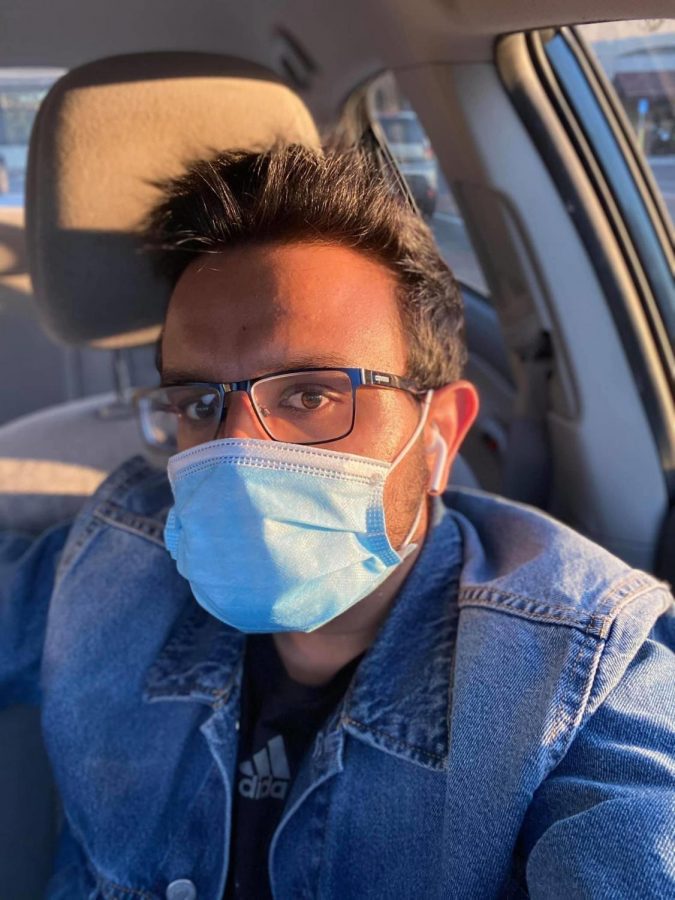Shreyans Khunteta: Organizing a web of community support
August 14, 2020
This Q&A is the eighteenth in a 19-part series, “19 COVID-19 Stories,” updated on Mondays, Wednesdays and Fridays, diving into the unique perspectives of the Corvallis community as they face COVID-19 and all its social and economic effects.
Shreyans Khunteta is a Corvallis community member and Oregon State University alumnus who started a grassroots organization called the COVID Response Collective when the COVID-19 pandemic hit. Centered around the Corvallis area, but also working with the Warm Springs Native American tribe in Oregon and with other groups in the broader Pacific Northwest, the CRC aims to connect community members together during a trying time, and provide support for anyone who is struggling. Khunteta says the CRC provides a range of services including food delivery, thermometer and mask distribution, grocery shopping and financial aid distribution.
What was it like to start up a grassroots organization that has impacted so many, and what inspired you to do so?
I started being extremely concerned and worried about the coronavirus a few weeks before most Americans. When the virus officially hit US soil I started posting what seemed to many at that time as apocalyptic, paranoid warnings about the effect it would have on society. Within two weeks, President Donald Trump issued a statement banning travel to Europe and I think most Americans realized this virus would have a substantial impact on their lives. I realized that the time for hoping the government would step up was over, as they have done an utterly terrible job. We have to step up and support each other, the core concept of “mutual aid”, which was a term I think most Americans didn’t know before the pandemic but we are extremely familiar with now. It has been incredibly gratifying to run the CRC, and it’s a community effort. I could not have done this without the amazing people who helped me run this in the past, and those who help me run it today, Karen Harper and Josh Akins. I also appreciate our aid and connections with the local community, such as 2 Towns Ciderhouse for providing us with barrels needed to create handwashing stations, and HazAdapt for helping us with software support and for their CEO Ginny Katz being instrumental in providing her organisational genius at the early stages of the CRC.
What have been the CRC’s biggest challenges?
The biggest crisis coming is the eviction crisis and people being unable to pay rent. The government refuses to step up and cancel rent or give every American $2,000 a month to cover living expenses in the pandemic. We can’t save everyone. We try to provide out as much money as we can to people who need it, but this is a problem beyond us. The government must step up and provide assistance to people who are in danger of losing their homes – a moriartium on evictions as Oregon has done is useful, but it isn’t enough.
What are some of the most inspiring stories you’ve seen come out of this?
Neils Nielsen’s handwashing stations are just incredible. He put his engineering know-how to incredible use by helping out arguably the most marginalised group of people in society. There’s no way to stay at home during a pandemic if you have no home, and his handwashing stations are the first line of defense many people have. While the city of Corvallis no longer wants them, the city of Albany does, and they will be actively maintaining them. In addition, we were able to purchase 2000 KN95 masks which we have given out to various groups such as the Navajo Nation, the Warm Springs tribe, Deschutes County, Linn County and Benton County.
How has the CRC evolved as the public and government response to the pandemic has evolved?
A lot of our services are now much more mask-focused, for example. We used to focus heavily on grocery delivery. That is less of an issue now as many people have connections in their own lives to handle that after the chaos of the early stages of the pandemic. In contrast, it’s now scientifically proven a mask helps reduce COVID risk, so we have reoriented many of our efforts towards helping distribute masks out to groups who need it.
Do you see additional community needs that you think could or should be filled by community organizations?
I think we desperately need to give money to people who are at risk. We should be paying people to stay home. We should be making sure everyone have medical grade masks, yes, but the best measure is to have as many people as possible stay home and socially distant and able to pay rent to continue doing so.
What is something you’ve learned from this experience that you think everyone should know?
There is nothing better for your own mental health and sanity than to help other people. If you feel hopeless, taking the effort to help people to the best of your ability means that at least you know you’re doing the best you can. Knowing that helps me avoid depression over the world’s situation, because I know I personally am doing everything I can do.















































































































